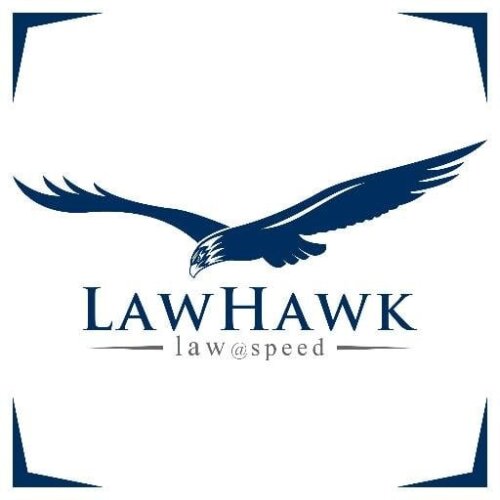Best Advertising and Marketing Lawyers in New Zealand
Share your needs with us, get contacted by law firms.
Free. Takes 2 min.
Or refine your search by selecting a city:
List of the best lawyers in New Zealand
About Advertising and Marketing Law in New Zealand
Advertising and Marketing in New Zealand are governed by several laws and regulations aimed at protecting consumers and ensuring fair competition in the marketplace. The laws in New Zealand are designed to prevent false or misleading advertising, unfair trading practices, and to regulate specific industries such as alcohol and gambling.
Why You May Need a Lawyer
You may need a lawyer specializing in Advertising and Marketing in New Zealand if you are facing issues related to compliance with advertising regulations, a dispute over marketing strategies, or if you are being accused of deceptive advertising practices. A lawyer can help you understand your legal obligations, navigate regulatory requirements, and defend your rights in legal proceedings.
Local Laws Overview
Some key aspects of local laws that are particularly relevant to Advertising and Marketing in New Zealand include the Fair Trading Act 1986, the Advertising Standards Authority Codes of Practice, and regulations specific to certain industries like the Therapeutic Goods Advertising Code. These laws set out standards for honesty and fairness in advertising, require substantiation for advertising claims, and prohibit misleading or deceptive conduct.
Frequently Asked Questions
1. Can I make claims about my product that I can't substantiate?
No, it is against the law in New Zealand to make claims about your product that you cannot substantiate with evidence. Failure to substantiate your claims can lead to complaints, legal action, and financial penalties.
2. Are there restrictions on using testimonials in advertising?
Yes, testimonials must be genuine and not misleading. You are also required to have evidence to support any claim made in a testimonial. The Advertising Standards Authority provides guidelines on the use of testimonials in advertising.
3. What is the role of the Advertising Standards Authority?
The Advertising Standards Authority (ASA) is an industry body that oversees advertising standards in New Zealand. They provide a Code of Ethics and adjudicate on complaints about advertising to ensure compliance with the rules.
4. What is the penalty for breaching advertising regulations in New Zealand?
Breaching advertising regulations can result in fines, court proceedings, reputational damage, and having to withdraw or amend the advertising material. It is essential to comply with the law to avoid these consequences.
5. Can my competitor sue me for comparative advertising?
Competitors can take legal action against you for comparative advertising if they believe it is misleading or deceptive, or if it damages their reputation or business. It is crucial to ensure that comparative advertising is fair, accurate, and can be substantiated.
6. Are there restrictions on advertising certain products in New Zealand?
Yes, there are specific regulations governing the advertising of products like alcohol, tobacco, gambling, and therapeutic goods. These industries have additional requirements and restrictions to protect consumers and public health.
7. How can I ensure my advertising complies with the law?
To ensure your advertising complies with the law, it is recommended to seek legal advice, keep up-to-date with advertising regulations, follow industry codes of practice, and be honest and transparent in your advertising messages.
8. Can I use deceptive tactics in marketing to attract more customers?
No, using deceptive tactics in marketing is illegal in New Zealand. Deceptive marketing practices can lead to complaints, legal action, and financial penalties. It is essential to be truthful and honest in your marketing efforts.
9. What should I do if a competitor is engaging in unfair advertising practices?
If you believe a competitor is engaging in unfair advertising practices, you can make a complaint to the Advertising Standards Authority or seek legal advice to address the issue. It is important to protect your rights and ensure fair competition in the marketplace.
10. How can a lawyer help me with advertising and marketing legal issues?
A lawyer specializing in Advertising and Marketing can provide legal advice on compliance with advertising regulations, help resolve disputes, represent you in legal proceedings, and protect your rights in negotiations with regulatory authorities or competitors. Their expertise can help you navigate the complexities of advertising law in New Zealand.
Additional Resources
For more information and resources on Advertising and Marketing in New Zealand, you can visit the Advertising Standards Authority website, the Commerce Commission website, and seek guidance from legal professionals specializing in this area of law.
Next Steps
If you require legal assistance in Advertising and Marketing in New Zealand, it is advisable to consult with a lawyer experienced in this field. They can provide personalized advice, review your advertising materials for compliance, and represent your interests in legal matters related to advertising and marketing. Take proactive steps to ensure your advertising practices are lawful and ethical to protect your business and reputation.
Lawzana helps you find the best lawyers and law firms in New Zealand through a curated and pre-screened list of qualified legal professionals. Our platform offers rankings and detailed profiles of attorneys and law firms, allowing you to compare based on practice areas, including Advertising and Marketing, experience, and client feedback.
Each profile includes a description of the firm's areas of practice, client reviews, team members and partners, year of establishment, spoken languages, office locations, contact information, social media presence, and any published articles or resources. Most firms on our platform speak English and are experienced in both local and international legal matters.
Get a quote from top-rated law firms in New Zealand — quickly, securely, and without unnecessary hassle.
Disclaimer:
The information provided on this page is for general informational purposes only and does not constitute legal advice. While we strive to ensure the accuracy and relevance of the content, legal information may change over time, and interpretations of the law can vary. You should always consult with a qualified legal professional for advice specific to your situation.
We disclaim all liability for actions taken or not taken based on the content of this page. If you believe any information is incorrect or outdated, please contact us, and we will review and update it where appropriate.
Browse advertising and marketing law firms by city in New Zealand
Refine your search by selecting a city.









